Search Results
The Impact of Pro-Poor Sanitation Subsidies in Open Defecation-Free Communities in Rural Ghana
Globally, 494 million people practice open defecation. Even after achieving open defecation-free (ODF) status through efforts such as Community-Led Total Sanitation (CLTS), communities, and particularly vulnerable households, may revert back to open defecation, especially when toilet collapse is common and durable toilets are unaffordable. There is increasing interest in pro-poor sanitation subsidies to help address these challenges. This webinar from USAID’s Water, Sanitation and Hygiene Partnerships and Learning for Sustainability Project will summarize a study that evaluated the impacts of a pro-poor sanitation subsidy program among 109 post-ODF communities in Northern Ghana. Presenters: Joyce Kisiangani, Aquaya Institute John Trimmer, Aquaya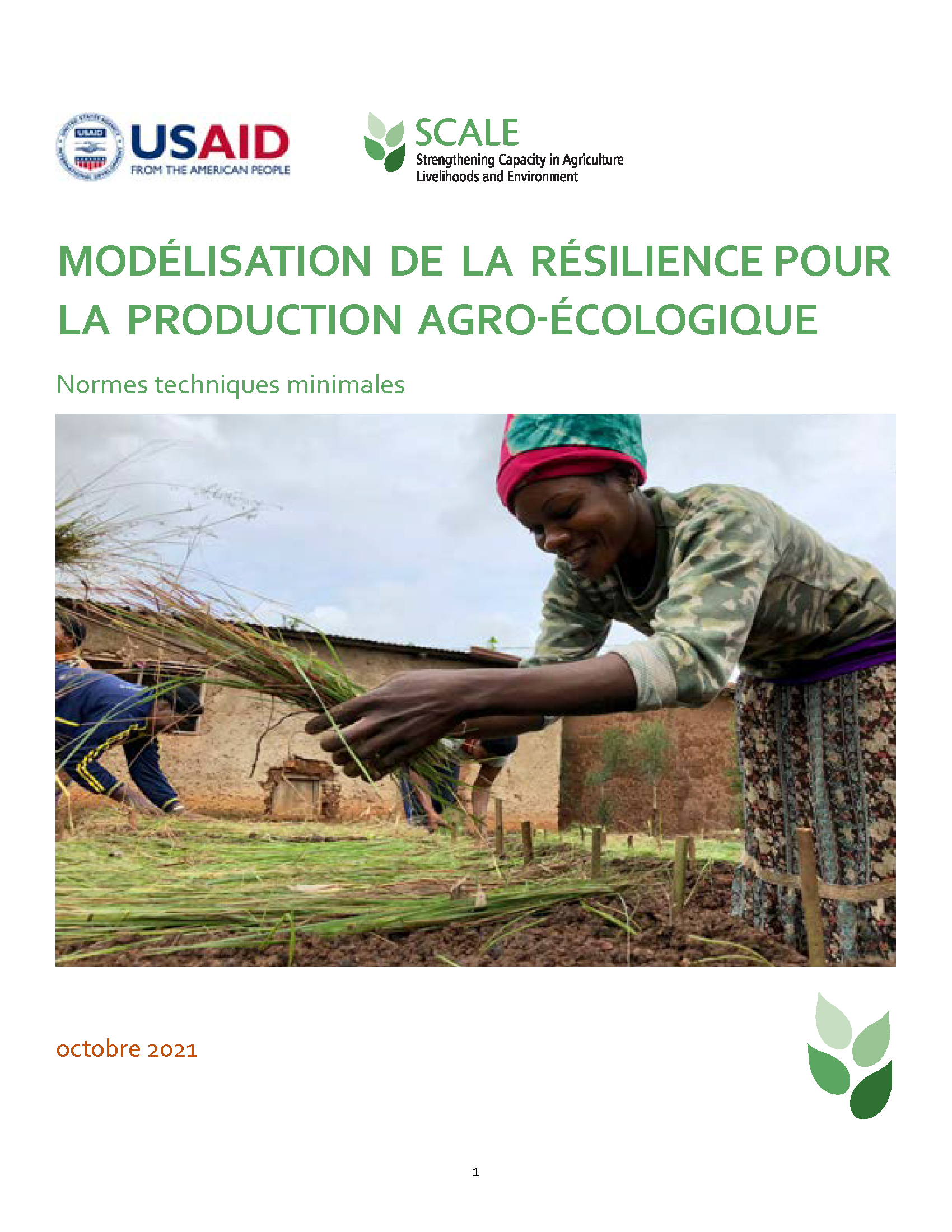
Modélisation de la résilience pour la production agro-écologique : Normes techniques minimales
Authors:
SCALE
Sector Type:
Agriculture and Livelihoods |
Resilience and Disaster Risk Reduction |
Disaster Preparedness & Mitigation
Year Published:
2021
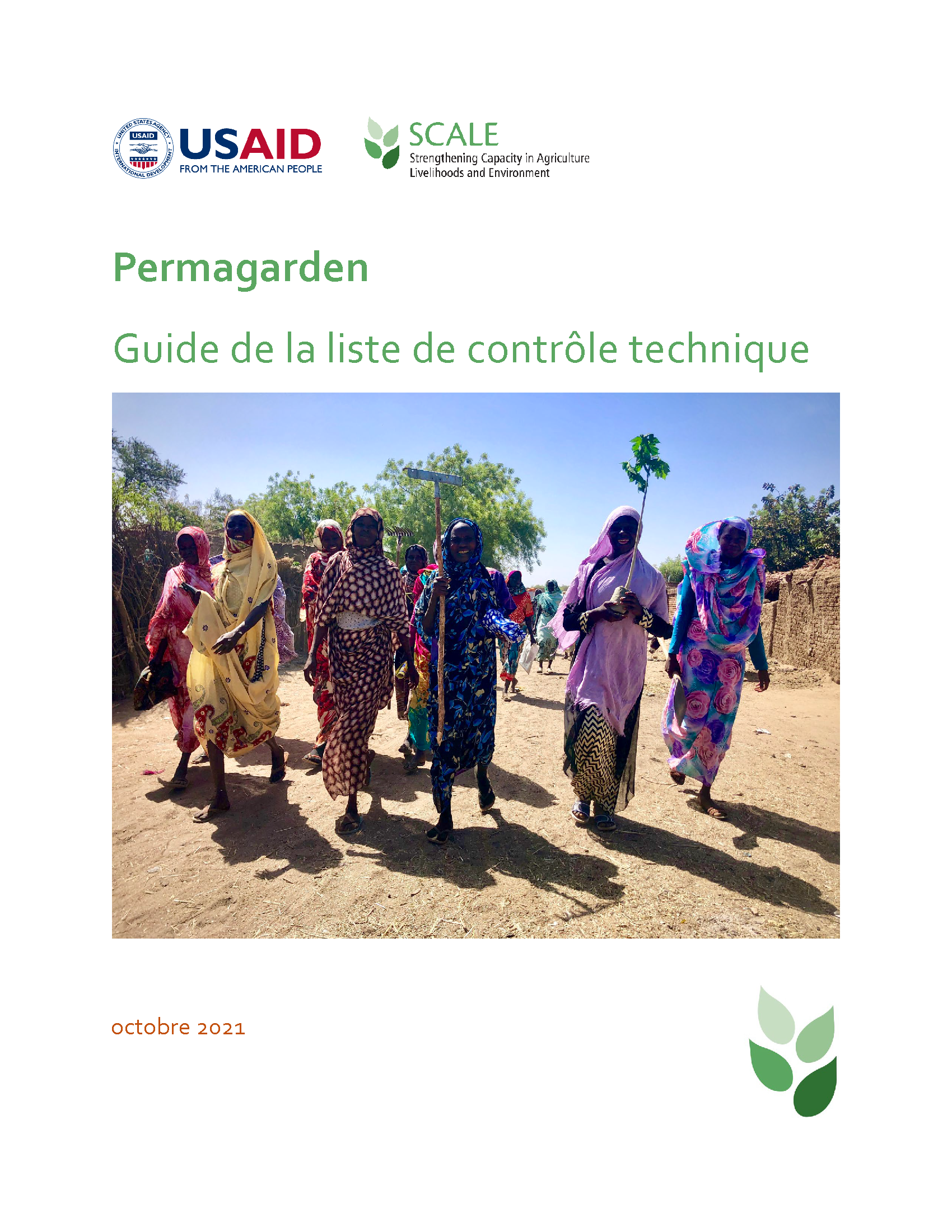
Permagarden : Liste de contrôle et guide de la liste de contrôle technique
Authors:
SCALE
Sector Type:
Agriculture and Livelihoods |
Crop Production
Year Published:
2021
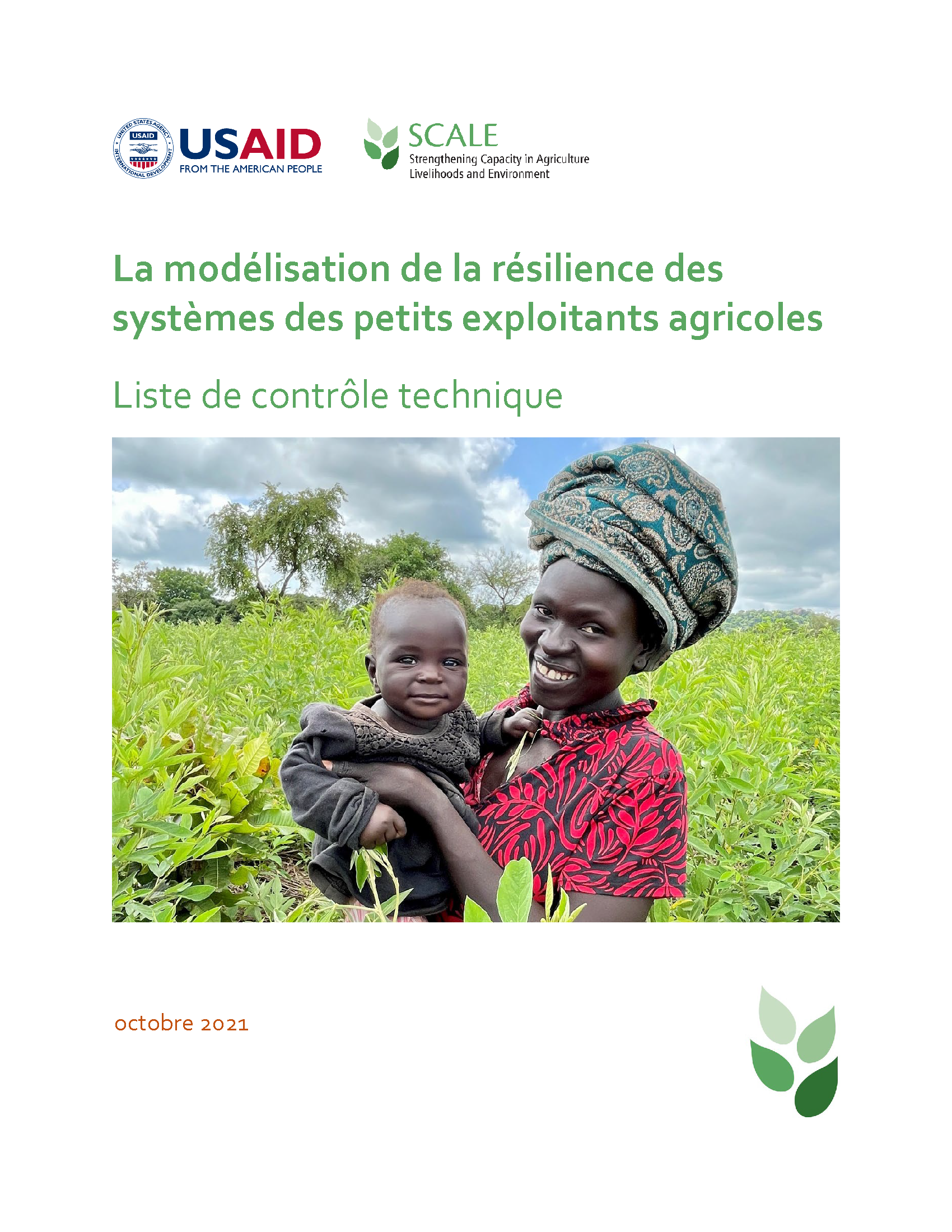
La modélisation de la résilience des systèmes des petits exploitants agricoles : Liste de contrôle et guide de la liste de contrôle technique
Authors:
SCALE
Sector Type:
Agriculture and Livelihoods |
Resilience and Disaster Risk Reduction |
Disaster Preparedness & Mitigation
Year Published:
2021
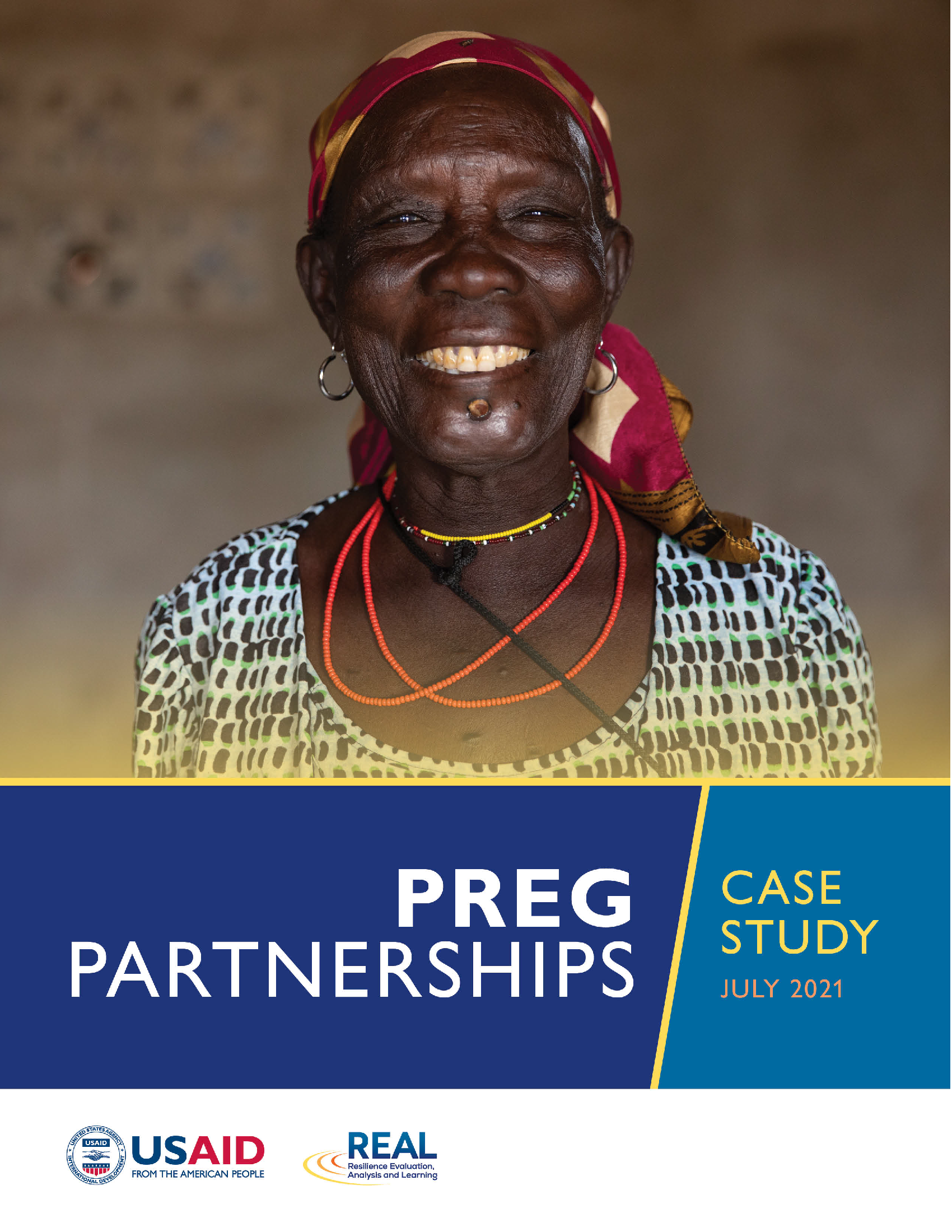
PREG Partnerships Case Study
Authors:
REAL
Sector Type:
Resilience and Disaster Risk Reduction
Year Published:
2021
The Creative Green Adaptation Award needs your vote!
Check out the video entries and cast your vote for this year's most creative program innovation for SCALE's Creative Green Adaptation Award by November 12th! https://www.fsnnetwork.org/grant/scale-creative-green-adaptation-award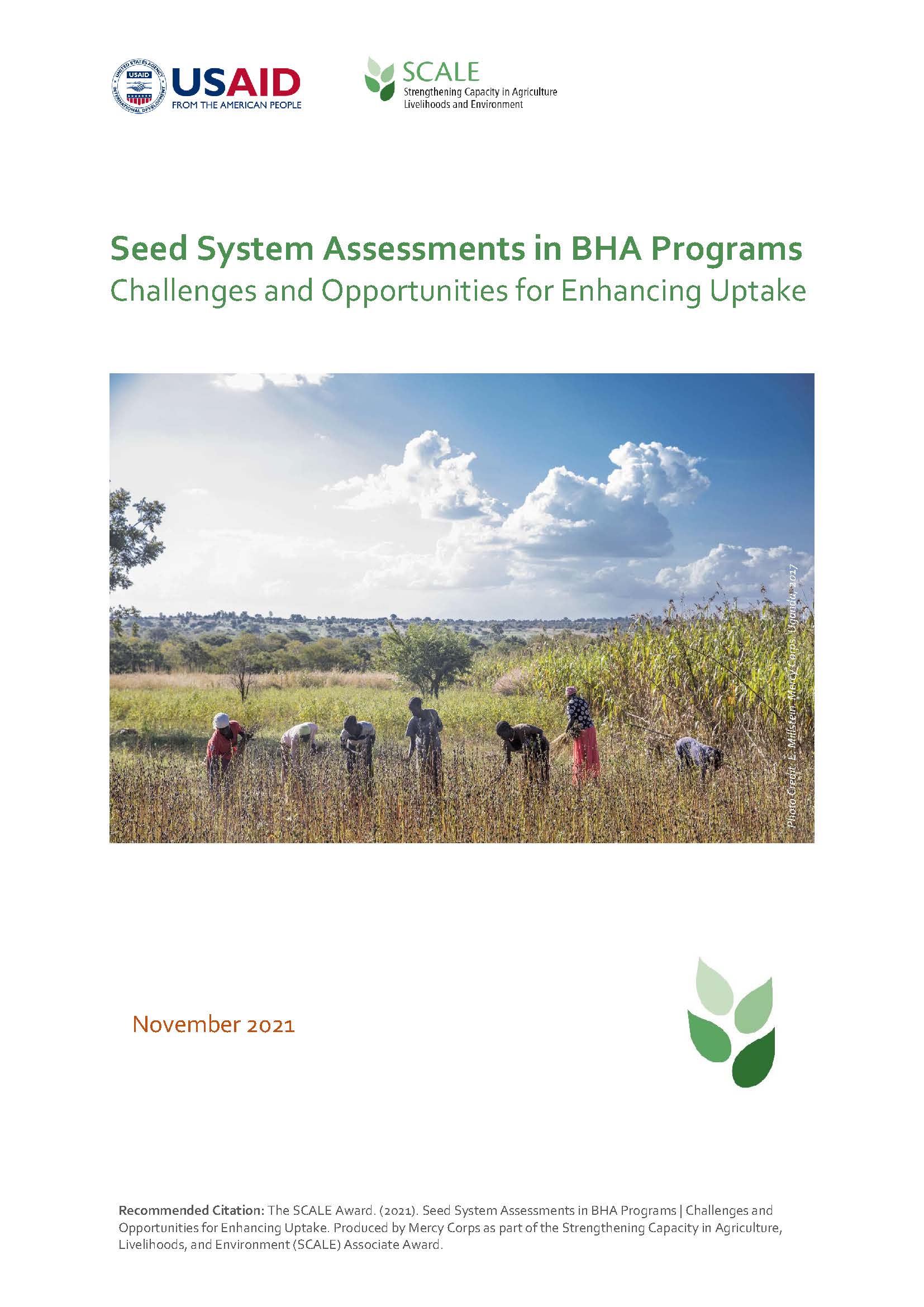
Seed System Assessments in BHA Programs | Challenges and Opportunities for Enhancing Uptake
Authors:
SCALE
Sector Type:
Research |
Integrated Programming
Year Published:
2021
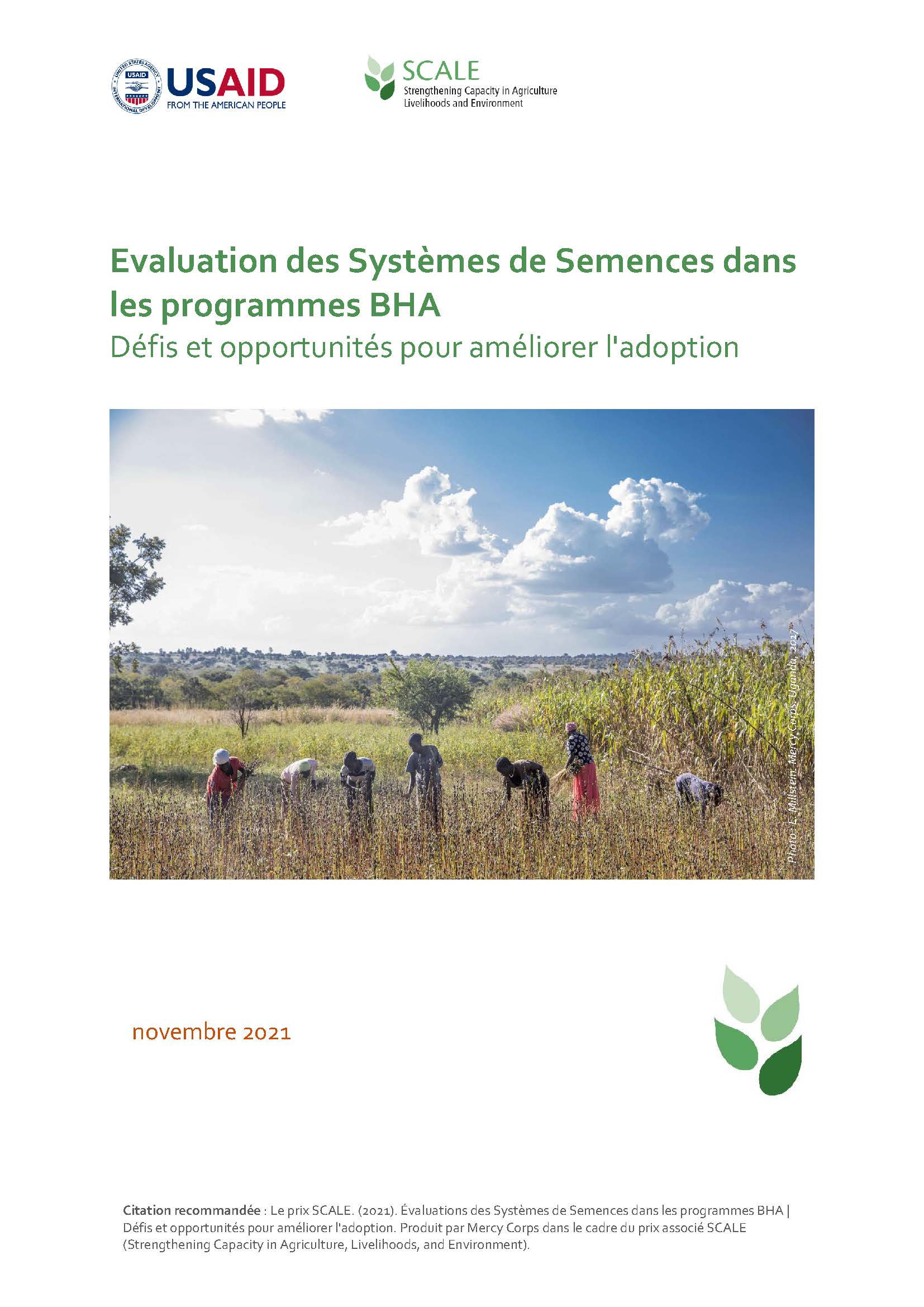
Evaluation des Systèmes de Semences dans les programmes BHA | Défis et opportunités pour améliorer l'adoption
Authors:
SCALE
Sector Type:
Research |
Integrated Programming
Year Published:
2021